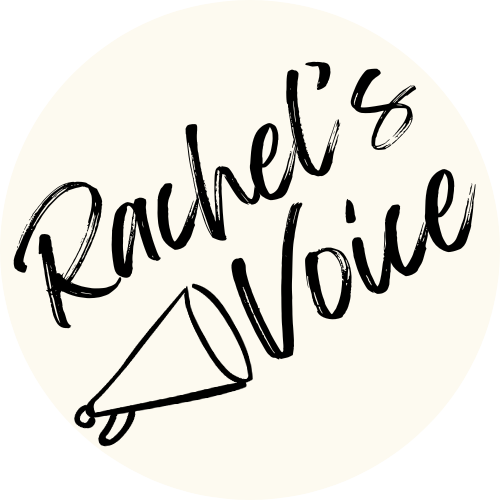About Rachel’s Voice
Rachel’s voice is a partnership project between national learning disability charity Mencap and international law firm Fieldfisher LLP. Named after the daughter of one of our earliest clients, Rachel Johnston, our project works to address systemic healthcare inequalities within the learning disability population, and challenges healthcare practices which put people with disabilities at risk.
Led by Caron Heyes, Director in the Medical Negligence team at Fieldfisher, and solicitor for Rachel’s family during the inquest into her death, this project aims to provide families in similar situations the pro bono (free) support they need in order to access justice.
About the project
Mencap and Fieldfisher have a long standing pro bono relationship, and Rachel’s Voice evolved into its current format following the outcomes of some of the earliest cases Fieldfisher was referred by Mencap. Between 2020 and 2021, solicitor Caron Heyes supported and represented Diana Johnston in an inquest into her daughter Rachel’s death following discharge from hospital for day surgery back to her nursing home.
Rachel was a middle-aged woman who had severe learning disabilities and a stroke in her later years which increased her dependency for mobility and care needs. She was unable to speak, but expressed herself and her emotions through her voice and behaviour. Rachel had a good quality of life and was well loved by her family.
The care that Rachel received was especially grievous and would not have been experienced had she not had a learning disability. Her life was abruptly and painfully cut short by appalling failures of care. She was vulnerable and deserved the best of care and support from her carers, and those treating her.
As we discovered while investigating her care for the inquest proceedings, the hospital care was given without accommodation for her learning disability. Rachel’s mother’s input was discounted, the 111 service failed account for the fact that she was non-verbal and the care home failed to give her any adequate care. The outcome of the inquest was a finding that she was discharged with inadequate information, and that at the nursing home there was a gross failing to provide basic medical care. This caused her to suffer a cardiac arrest and later die.
A theme arising from running cases like Rachel’s are that inquests can become missed opportunities to create positive changes in healthcare practices if they are not conducted with the intention of highlighting clear failures in care and ensuring lessons are learned.
We also perceived that often families like Diane’s struggled to get representation at Inquest from lawyers who had both the necessary medical expertise and an understanding of the learning disability aspects of healthcare. Moreover, because the cases were not being tracked by Mencap or another organisation, nor were outcomes of learning disability avoidable death cases being analysed, there was no system in place pick up trends to ensure that existing projects such as the LeDeR programme are not missing systemic issues.
We recognise that other organisations such as AvMA run excellent free inquest representation projects.
Rachel’s Voice is a project which exclusively focuses on learning disability deaths occurring from treatment in a healthcare setting. Through this project, we are focusing on how the reporting of learning disability deaths and the inquest system can be improved to ensure lessons from failures and inadequacies in care provided to people with a learning disability are learned and prevented from happening again. Our overall goal to achieve health equality for people with a learning disability.
The cases we work on have a commonality in that the individual who died received treatment which was not the same or equal to what they would have received had they not had a learning disability. We are working to pinpoint why these deaths are happening and how these practices which entrench healthcare inequality can be eliminated.
-
These cases spurred Caron Heyes, a solicitor specialising in medical negligence cases, and Dan Scorer, Director of Policy at Mencap to search for a way to harness Fieldfisher's legal expertise with Mencap's know-how to contribute to changing this inequitable healthcare system. Our focus is on reducing avoidable deaths of people with a learning disability through creating changes in how they receive medical treatment.
We know from a national NHS England programme called LeDeR that approximately 1,200 people with a learning disability die from avoidable causes after medical treatment every year and this is around 5 times higher than in the rest of the population.
The project is funded in the first instance by generous funding from Mencap and Fieldfisher's Just Purpose Challenge, an internal competition that offered to back a proposal that addressed a pressing need in society. The project is led by Caron Heyes, and is additionally supported by Catriona Filmer, Pro Bono Senior Associate and Dan Scorer at Mencap
How we achieve our goals
-
We offer free legal advice to:
a. bereaved families on how to make and navigate hospital complaints and/or the inquest process - in some cases representing them at inquest.
b. We also advise on whether there is scope to reopen inquests or refer the complaints for further investigation, such as to the CQC.
c. If needed we refer them on to get additional legal advice.
-
Accessibility to information is also key and so our website has a wealth of information about inquests and hospital complaints processes told through a learning disability lens, and signposting. Our website also includes information pages on complaints processes, inquests, investigations and understanding investigations.
-
We gather information to support our work, for instance we have commissioned research around the scope of learning disabled related deaths, and use FOIs to gather information.
-
We engage with key stakeholders in the NHS and community to look for ways to learn from deaths. For example, we are meeting with NHS Trusts to discuss ways in which we might input into their learning Disability admission policies and/or Hospital Passports to improve access and communications.
Meet the Team
Why does Rachel’s voice exist and why is it needed?
We are the only organisation specifically working to challenge the issue of avoidable deaths of people with learning disabilities, who are 29% more likely to die from an avoidable cause in comparison to the general population (Heslop et al 2013).
People with disabilities experience significant barriers to accessing healthcare treatment, which lead to avoidable deaths.
These barriers include:
Staff having little understanding of the patient's disability and their needs
Failure to recognise that a person with a learning disability is unwell or in pain
Failure to make a correct diagnosis
Lack of collaboration between care providers (such as NHS and social care providers)
Not enough involvement of individual carers or family members in the person's care
Inadequate follow-up care
Failures to make reasonable adjustments to accommodate the needs of a person with a disability can also be a barrier to accessing good quality healthcare and a contributing factor into the number of avoidable deaths in people with a learning disability.
You can read more about health inequality on the Mencap website.
Through the cases we receive, the Rachel's voice team aim to break down these barriers and challenge these systemic issues to create safer healthcare practices for disabled people
An example of how using a complaint and a review may lead to positive systemic change is the story of Oliver McGowan. His death was shocking, and following it his parents struggled to get an honest and open review of his care and the reasons for his death in hospital. They sought a review of his care via the LeDeR scheme and were being obstructed. We provided the family with legal advice and support on obtaining a review from NHS England, and the subsequent NHS England » Independent Review into Thomas Oliver McGowan’s LeDeR Process: phase two conducted into his care, chaired by Fiona Ritchie, supported Oliver’s parents campaign for mandatory training for health and social care staff in the needs of people with autism and learning disabilities, introduced in the Health and Care Act 2022. Providing the family with legal and strategic advice on how to achieve that review was integral to the process, and that review in itself has been cited, and contributed to a re-shaping of the LeDeR process as well.
Interventions like this create opportunity for better healthcare practices for all people with disabilities. You can read more about the Oliver McGowan Mandatory Training on Learning Disability and Autism here.





